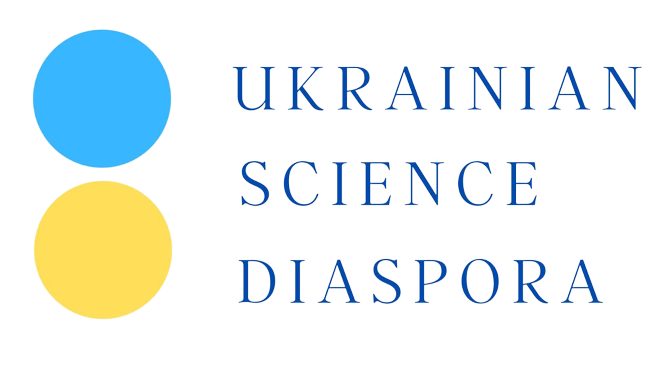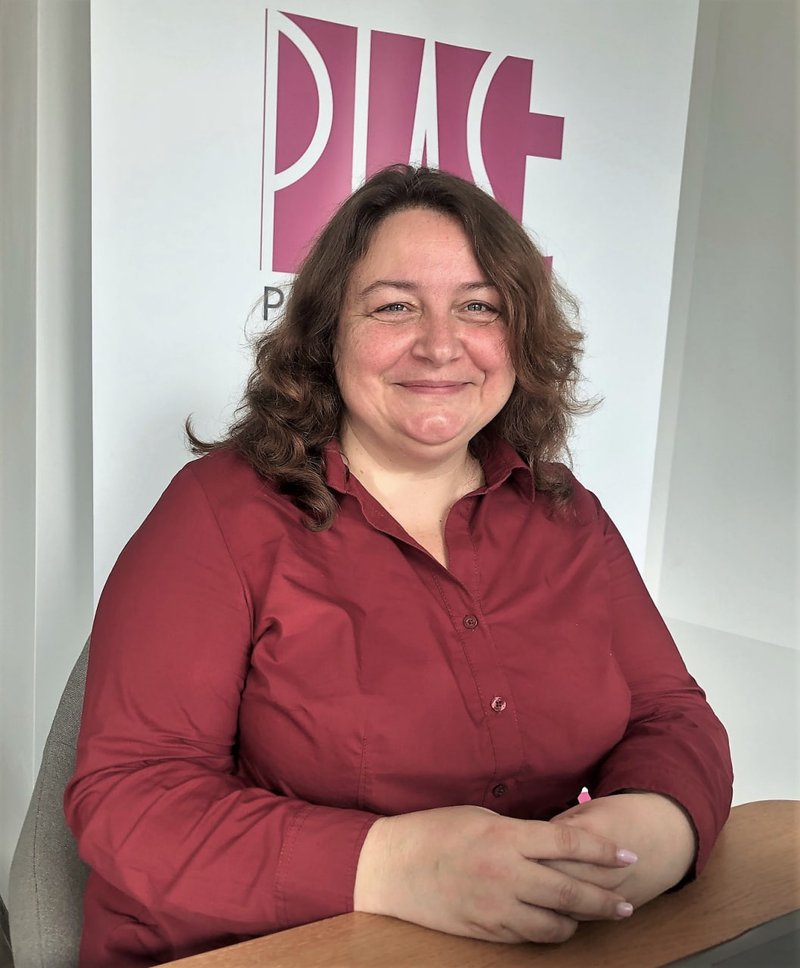In 2022, I was forced to leave Ukraine due to Russia’s full-scale invasion. Together with my son and mother, we found refuge in Poland. Despite the challenges of displacement, I have maintained my academic affiliation with the National University "Odesa Polytechnic", where I have served as an Associate Professor at the Department of Cultural Studies and Philosophy of Culture since 2012. I continue to teach remotely, sharing the knowledge and insights gained through ongoing research with my students in Ukraine.
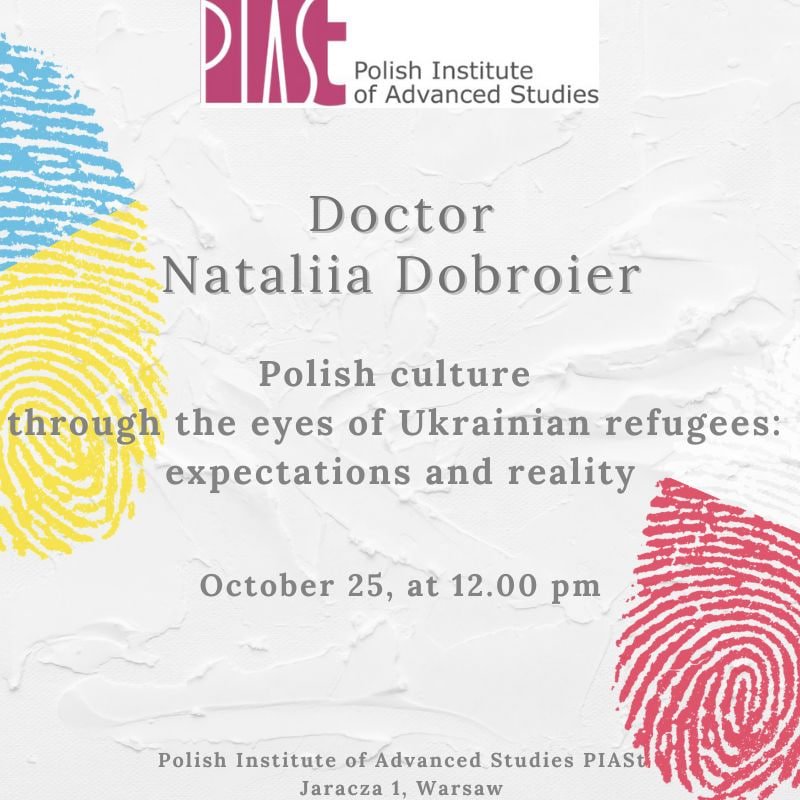
Since the beginning of the war, my academic focus has taken on new urgency. My research project “Ukrainian Refugees’ Knowledge about Polish Culture Before and After the War” (August 2022 – November 2023) was launched within the framework of the Polish Academy of Sciences, with support from the Polish Institute of Advanced Studies (PIASt), which was the first institution to welcome me. PIASt is part of the Polish Academy of Sciences and played a key role in the initial phase of my work. The project also received funding from the Institute for Advanced Studies in Israel and the Institute for Human Sciences (IWM, Vienna).
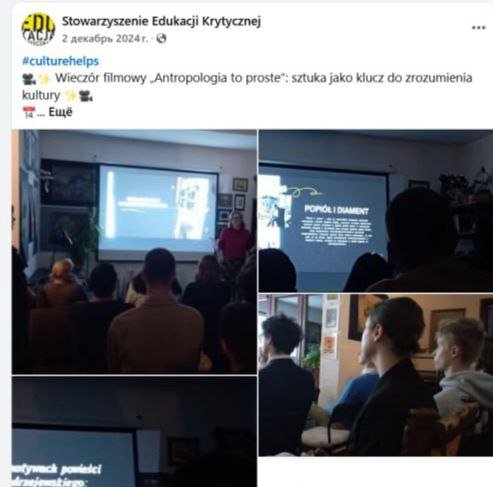
Thanks to the support of the Kosciuszko Foundation, I was able to expand this study on the local level in Wrocław, focusing on the socio-cultural interactions of Ukrainian immigrants in Poland after February 24, 2022. Continuing my collaboration with Polish research institutions, I also participated as a facilitator and interviewer in a project conducted by the independent group “Triangle” for CARE Poland, IRC, and Save the Children (October–November 2023).
In 2023, I initiated and led the original cultural and anthropological project “Anthropology is Easy”, designed specifically for Ukrainian teenagers. Supported by Stowarzyszenie Edukacji Krytycznej, the project was highly evaluated and selected for further development in 2024 as part of the Culture Helps / Культура допомагає initiative (Ukraine – Europe). The idea for this project arose in response to findings from previous research, which revealed that teenagers often experience the most complex challenges during cultural adaptation. This educational initiative uses the tools of cultural anthropology to help young people better understand different cultures, encouraging empathy, resilience, and a deeper sense of belonging in a new environment.
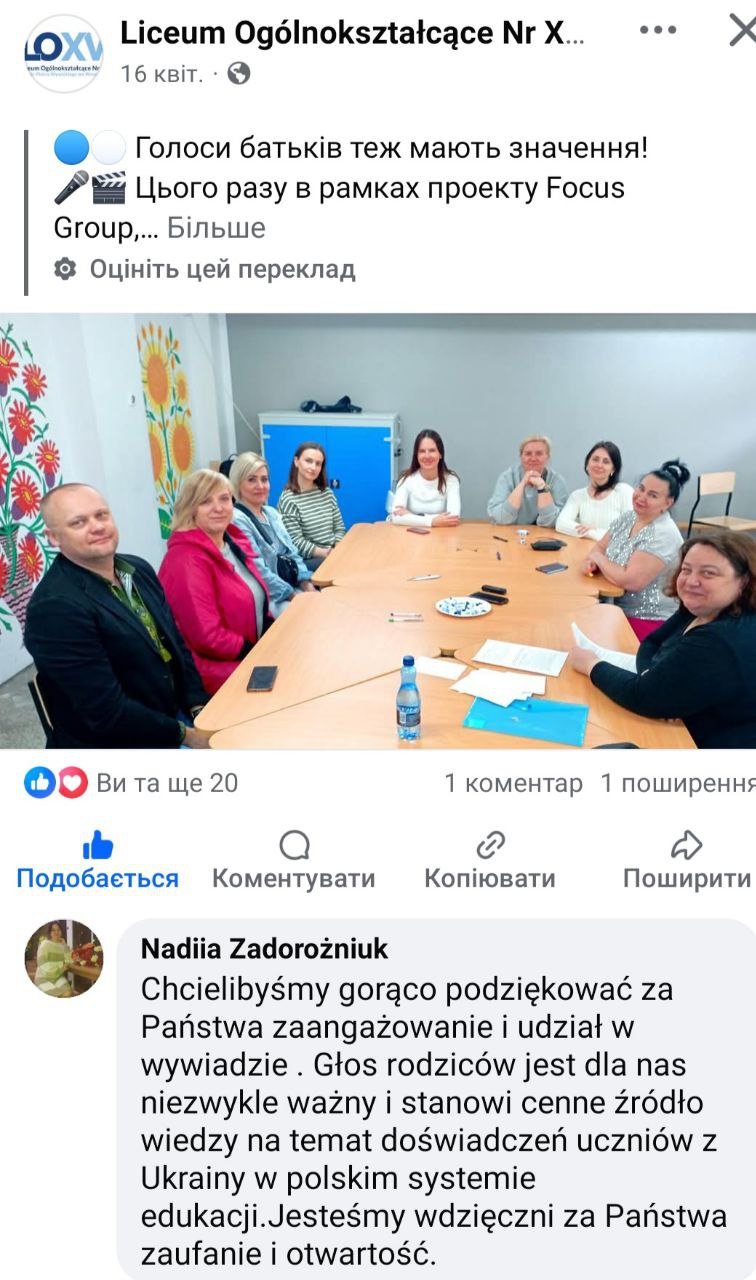
In 2025, I joined the research team of the project “Educational Needs of Ukrainian Refugees,” implemented by the University of Silesia and the University of Wrocław in cooperation with UNICEF. This interdisciplinary collaboration continues my commitment to exploring the social, cultural, and educational integration of displaced Ukrainians.
I am deeply grateful to all the institutions that supported my research and provided opportunities for academic development during these challenging times. Special thanks go to the Polish Institute of Advanced Studies (PIASt), the Polish Academy of Sciences, the Institute for Advanced Studies in Israel, the Institute for Human Sciences (IWM, Vienna), the Kosciuszko Foundation, Stowarzyszenie Edukacji Krytycznej, the University of Silesia, the University of Wrocław, and the Culture Helps / Культура допомагає initiative.
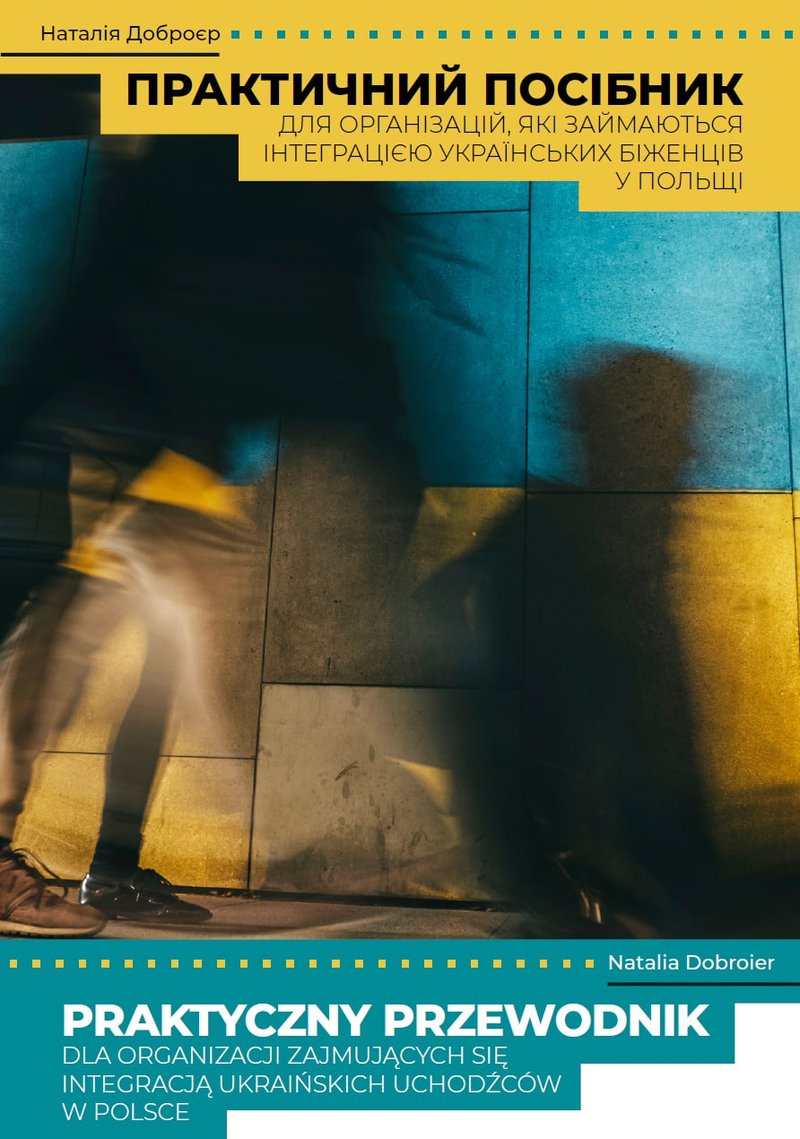
I am profoundly thankful to the European academic community for its tremendous support, openness, and generosity toward Ukraine and the Ukrainian people.
